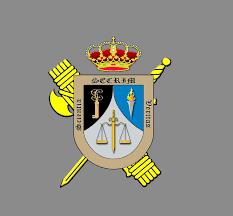

Legal and the Law in Spain
Government to publish list of late invoice payers to warn businesses
The Council of Ministers approved Royal Decree 439/2024, of April 30, which creates and regulates the State Council for small and medium-sized businesses, and regulates the State Observatory on Private Delinquency. This entity will serve, among other things, to annually publish a list that includes thousands of businesses that do not pay invoices to their suppliers on time, most of them self-employed and SMEs.
According to the late payment observatory of the Spanish Confederation of Small and Medium Enterprises (CEPYME), almost half of invoices in Spain are paid late. The average payment period exceeds 80 days, 20 days more than the legal period allowed.
For the first time, with the creation of this standard, there will be a list that collects and publicises the name of all businesses that fail to comply with the legal payment deadline to their suppliers, regardless of whether they have communicated the non-payment or not. Until now, this pressure mechanism only existed for large debtors with the Tax Agency, but not in the private sector.
According to Royal Decree 439/2024, the observatory that has just been created will prepare the list of private companies that have failed to comply with the legal payment terms, which are currently 30 days, extendable to two months.
This list of companies will be prepared annually, as of the reference date of December 31 of the previous year, based on the complete effective invoice payment information provided by the public administration body in charge of managing the public electronic billing solution.
This information will be in the hands of the Treasury thanks to the new Create and Grow Law, which will soon extend the obligation for all self-employed workers and SMEs to issue electronic invoices when they invoice other businesses. The payment status will be included and updated on these invoices.
In addition, the new list will include the full company name or name of the provider, its tax identification number, the CNAE code of its main activity and the total amount of invoices pending payment whose legal deadline has been exceeded.
On the other hand, according to the Royal Decree, the list may not refer to natural persons or individual entrepreneurs. Therefore, self-employed workers who are not incorporated as a company could not be included in this list, regardless of their unpaid invoices.
-

 News1 week ago
News1 week agoOlive oil to join zero rate IVA from July
-

 Court News1 week ago
Court News1 week agoFour years in prison for hitting woman who didn´t want to have sex without a condom
-

 Health2 weeks ago
Health2 weeks agoSpain breaks bone marrow transplant record
-

 Health2 weeks ago
Health2 weeks agoThe Minister of Health presents the campaign “A summer of care” to promote good habits in the face of high temperatures




















